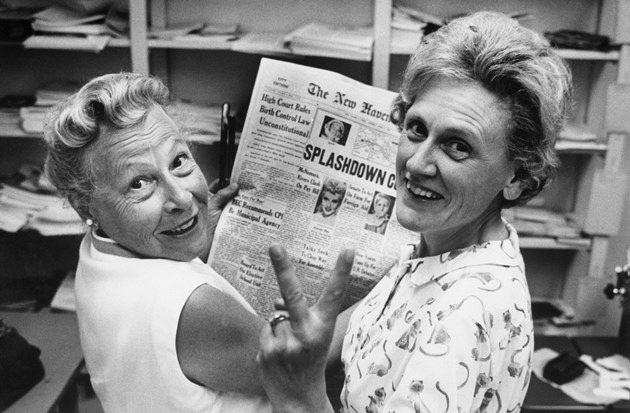Passed by Congress in 1873, the Comstock Act prevented the use and distribution of information regarding contraceptives. Activists, including Sanger, aimed to overturn the Act to make contraception universally accessible.
Legal Barriers
Activists disputed the legal restrictions, including the Comstock Act and state Comstock laws, which prevented access to contraceptives. Their efforts culminated in the historic Griswold v. Connecticut case (1965), and women's autonomy and access to contraception further increased throughout the late 1900s.

Excerpt from the Comstock Act, 1873. Courtesy of Library of Congress.
Even after FDA's approval of Enovid in 1960, state Comstock laws still prevented the prescription and sale of the Pill. In 1961, Estelle Griswold opened a birth control clinic and was arrested for violating the Connecticut Comstock Act. She subsequently contested its constitutionality before the Supreme Court. In 1965, the Court ruled in her favor, stating that Connecticut's prohibition of married women using the Pill was a violation of the right to privacy. In the same year, enforcement of the Comstock Acts ceased.

Estelle Griswold and Ernest Jahncke celebrate the court's decision on birth control legislature, 1965. Courtesy of Getty Images.
"The anti-use statute [...] prohibits doctors from affording advice to married persons on proper and effective methods of birth control. And the clear effect of these statutes, as enforced, is to deny disadvantaged citizens of Connecticut [...] access to medical assistance and up-to-date information in respect to proper methods of birth control"
- Justice Byron White, Griswold v. Connecticut
Excerpt of the State's argument from Griswold v. Connecticut, 1965. Courtesy of Supreme Court Clips.
Despite the plaintiff's assertion that the Pill would give women "immoral" amounts of sexual freedom, the court noted that the case centered exclusively on married couple's access to the Pill.